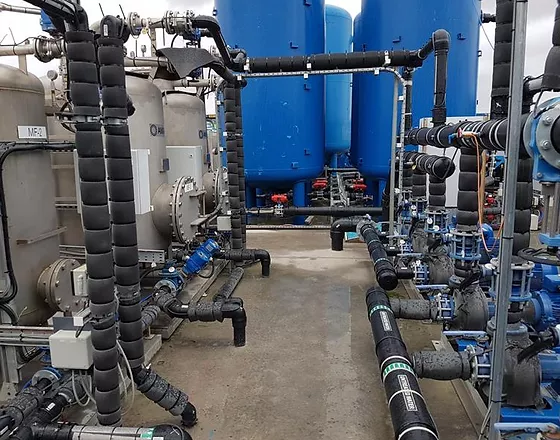Many thousands of gallons of water are thrown away each day, either by heavy industry, or domestic sewage. Unknowingly or knowingly, people don’t pay enough attention to wastewater treatment. It can have a direct or indirect effect on the health of people, animals, and plants in the surrounding area. The water treatment plant can have many applications. The water treatment plant makes water safe and reusable. Industries can also reuse treated water to make products and reap the benefits.
This article will explain how an industrial water treatment system can save thousands of liters every day.
Industry water treatment plants treat water to make it safe for use, manufacture, or disposal. The wastewater treatment process has many benefits. Let’s take a look.

It provides clean and reusable water
It is evident that even wastewater can be harmful to the environment. It is important to treat any water that cannot be used for drinking, even after treatment, so it does not harm the environment. A wastewater treatment plant can also be used to treat the wastewater for reuse. If necessary, it can be further purified for human consumption.
Protect Environment
Many waste materials, including chemicals, are found in wastewater. Water from the industrial sector may contain a hazardous chemical that can prove fatal if left open. The industrial water treatment plant will get rid of the chemical and harmful components. Two things will occur. You can reuse water for your own personal or industrial purposes. You can also help reduce environmental pollution.
Keeps disease away
Water that isn’t pure can be the source of many illnesses. This is why we often get sick during monsoon. The same goes for wastewater, blackwater, or used water. If it is not properly treated, it can cause disease-causing bacteria which will damage trees, plants, animals, and other living things.
Strengthens Economy
Environment projects to reduce pollution are funded with millions of rupees. India’s cities produce around 40,000 million liters per day of sewage waste, which flows directly into the rivers. Imagine if the sewage water were to be prevented from entering the river. This will result in millions of rupees being saved. It can also create jobs as a lot of manpower is required to operate water treatment plants.
Produces Energy
Right? Water is the source for electricity. The industrial water treatment plant can run entirely on its own power generated during treatment. Yes, electricity can be produced while water treatment is ongoing. It can also sell excess electricity to the national grid for mass consumption.
These are the advantages of an industrial water treatment system. Now we’ll see how it works. Let’s get started.
Industry water purification goes through four main processes known as screening, coagulation/flocculation, filtration, and disinfection.

Screening: This is where the water source passes through a screen. It keeps large particles from the water and does not interfere with the purification process.
Coagulation/Flocculation: In this process, the certain chemical is added to the water. The chemical removes small, but sticky particles from water. The water is then separated from the waste materials.
Filtration: This is the most complex process, where water passes through many types of filters. The entire floc is removed from the filter media and pure water is transmitted to the next step.
Disinfection: Finally, the water is accumulated into a disinfection tank. There chlorine is added to the water to kill any harmful bacteria. The water is then made reusable by the disinfected chemical that kills the harmful bacteria.
